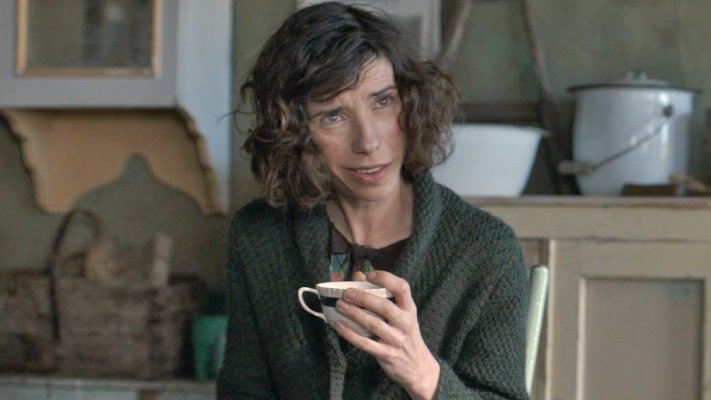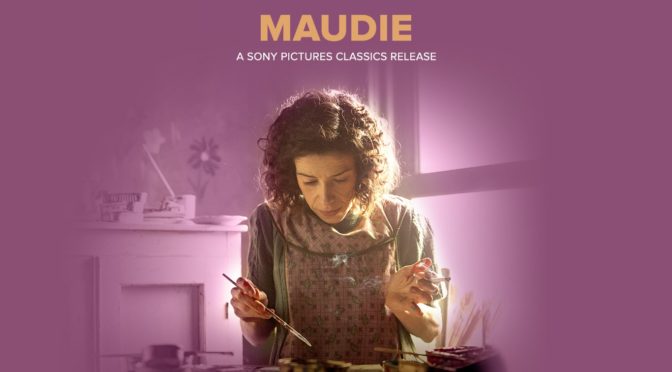Sometimes our hobbies can unexpectedly turn into our professions. Maudie is the story of Maude Lewis (Sally Hawkins; Layer Cake), a woman with who, due to damage from childhood arthritis, is deemed unable to take care of herself and lives with her aunt, painting for own enjoyment. Tired of being bossed around by her aunt, she answers the ad of Everett Lewis (Ethan Hawke; Before Midnight), a local fish salesman, looking for a live-in maid to clean his tiny 1-room house. The film covers her path to becoming a famous artist whose art is sold all over the country.
Our introduction to Maude is almost repulsive. Because the character is based on a real person, her portrayal receives extra scrutiny. Is she getting the respect she deserves? Hawkins is committed to the performance, but, given the character’s serious physical ailment, the film’s approach is manipulative, capitalizing on her appearance for the audience’s sympathy. This is only exacerbated when she leaves her aunt to become a live-in maid for Hawke’s character. We’re supposed to root for her independence and view her aunt as a villain, but the director (Aisling Walsh) hasn’t yet provided a reason to dislike the aunt. Sure, she may be overprotective, but Maude leaving to live with a complete stranger who doesn’t even have a separate room or bed for her doesn’t seem like the right alternative. This exploitation of her condition makes the early section of the film unintentionally uncomfortable.

The romance between Maude and Everett begins in an equally concerning manner. It is immediately clear that the leads are going to become a couple, but their relationship begins as borderline abusive. Everett, as her employer, berates her constantly and belittles her by saying she is less valued than the farm animals. Hawke depicts him as gruff, intellectually limited, insecure about himself, and quick to anger because of it. Everett doesn’t view respect as necessary for his employee and is deliberately condescending. He is even physically abusive when Maude voices her opinions. Everett is hinted at having had a difficult childhood from being raised in an orphanage and some of his behavior may be typical for the time period, but it adds traces of Stockholm Syndrome to their courtship. It makes their eventual marriage seem like less of a true fit for Maude than her only option given her poor situation.
Maude’s eventual rise to success is heartwarming. She starts taking more control of her relationship with Everett and helping him manage his business until her recreational paintings get noticed by her husband’s clients. Her art soon earns more money than Everett’s fish and their roles swap with him taking on the housework so she can devote her time to painting. This is where his affections for her become more explicit and their relationship starts to look like a true partnership. Finally, the often-cloying direction becomes less bothersome. Hawkins portrays Maude with such an innocent spirit that her accidental success in spite of her modest goals is a welcome event. The real-life character is endearing, but Walsh’s coercive manipulation and the suspect inception of Maude’s relationship add an inadvertently problematic tone that lingers over all aspects of the film.

2/5 stars.
